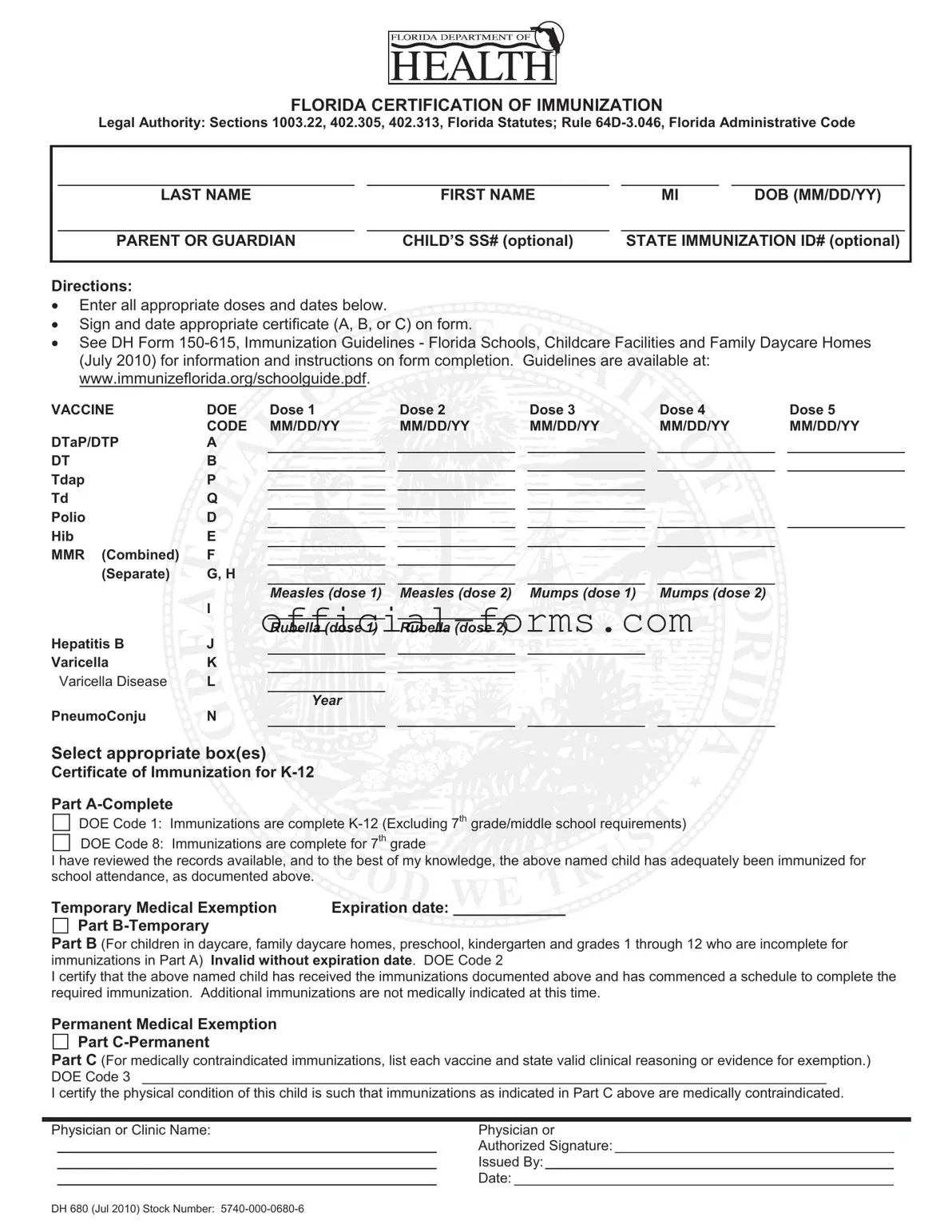Completing the Florida Certification of Immunization Form 680 can be straightforward, but several common mistakes can lead to complications. One frequent error is failing to provide complete information. For instance, omitting the child’s last name, first name, or date of birth can result in delays or rejections. Each field is essential for the form to be processed correctly.
Another common mistake involves incorrect vaccine dates. It is crucial to enter the correct doses and corresponding dates accurately. Entering a dose date in the wrong format, such as MM/DD/YY instead of the required format, can lead to confusion and may require the form to be resubmitted.
People often overlook the importance of signing and dating the appropriate certificate section. Each part of the form requires a signature to validate the information provided. Neglecting this step can invalidate the entire submission.
Additionally, some individuals fail to check the appropriate box for the certificate type. Whether it’s for K-12 or a temporary medical exemption, selecting the wrong option can lead to misclassification of the child’s immunization status.
Providing optional information, such as the child’s Social Security number or state immunization ID, is another area where mistakes can occur. While these fields are optional, leaving them blank when they are available can slow down processing if the information is needed later.
Another issue arises when individuals do not follow the guidelines for exemptions. For those claiming a permanent medical exemption, it is vital to provide valid clinical reasoning. Failing to do so can lead to rejection of the exemption request.
Some people do not keep a copy of the completed form for their records. Retaining a copy can be helpful for future reference or in case any issues arise regarding the child’s immunization status.
Finally, overlooking the expiration date for temporary medical exemptions can create problems. If the expiration date is missing or incorrect, the exemption may be deemed invalid, leading to potential issues with school enrollment.

